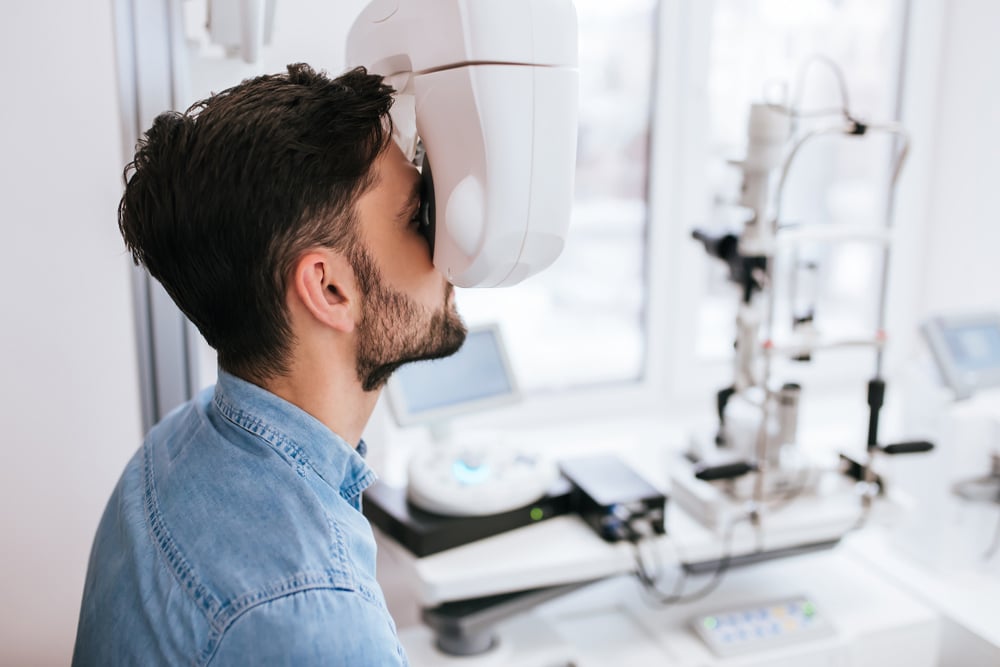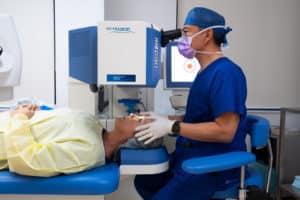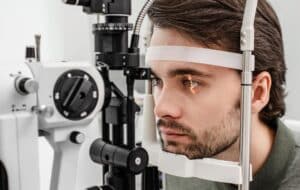The field of ophthalmology continues to evolve, introducing new approaches to diagnosing and managing eye conditions. These advancements focus on improving accuracy, refining treatment methods, and expanding access to care. For those living with an eye condition or simply curious about developments in vision care, staying informed about these changes can offer valuable insights. Below, we examine some of the latest diagnostic technologies, innovative treatment options, and emerging research shaping the future of ophthalmology.

Transformative Diagnostic Technologies
Advancements in diagnostic tools are redefining how ophthalmologists can detect and monitor eye conditions. These technologies can offer detailed insights into the structure and health of the eyes, supporting timely and precise evaluations.
- Optical Coherence Tomography (OCT): A non-invasive imaging method that can create high-resolution cross-sectional images of the retina, assisting in the early detection of conditions such as macular degeneration and diabetic retinopathy.
- Adaptive Optics: Initially developed for astronomy, this technology enhances retinal imaging by correcting distortions, enabling the observation of microscopic structures with greater clarity.
- AI-Powered Diagnostics: Artificial intelligence is being incorporated into ophthalmology to analyse extensive data efficiently. It can help identify early signs of glaucoma, retinal detachment, and other subtle conditions that might otherwise go unnoticed.
These tools can be critical in advancing the field, making evaluations more detailed and comprehensive.
Innovative Approaches to Eye Treatments
The treatment landscape for eye conditions has evolved, introducing techniques focusing on precision and reduced invasiveness. These methods support the preservation of vision while refining the treatment process.
- Gene Therapy: This emerging approach can address inherited retinal diseases by repairing or replacing defective genes. It has brought new possibilities for conditions like Leber congenital amaurosis, which previously had limited treatment options.
- Minimally Invasive Glaucoma Surgeries (MIGS): These procedures can help manage glaucoma by lowering intraocular pressure with minimal impact on the eye’s structure. They can provide a less disruptive alternative to traditional glaucoma surgeries.
- Laser-Assisted Cataract Surgery: Laser technology has improved the accuracy of cataract removal, contributing to better placement of replacement lenses and smoother post-operative recovery.
Future Trends & Research in Vision Care
Ongoing research in ophthalmology is introducing new technologies that could significantly influence how eye health is managed. These advancements aim to address complex conditions and improve monitoring and treatment precision.
- Bionic Eyes & Retinal Implants: These devices are being developed to assist individuals with severe vision loss by directly stimulating the optic nerve or retinal cells. They show potential for managing conditions like retinitis pigmentosa.
- Stem Cell Therapy: This research focuses on regenerating damaged retinal cells, with potential applications for degenerative diseases such as age-related macular degeneration.
- Wearable Eye Monitors: Innovations like smart contact lenses are designed to track metrics such as intraocular pressure and hydration, offering real-time insights into eye health.
These developments highlight how technological advancements and research are shaping the future of ophthalmology, expanding the possibilities for treatment and ongoing management.
Comprehensive Eye Care Services at Pacific Eye Clinic
Ophthalmology continues to evolve with advancements that can enhance the diagnosis, treatment, and management of eye conditions. These innovations can enable patients and practitioners to prioritise eye health precisely and efficiently.
At Pacific Eye Clinic, we offer various services to address eye conditions, utilising advanced technologies and procedures. For more information or to schedule a consultation, please get in touch with us today.
Author

Dr Marc Wei
Dr. Marc Wei is the principal specialist laser and cataract surgeon at Pacific Eye Clinic in Southport on the Gold Coast. He has 20 years of trusted experience in advanced laser cataract surgery and has completed more than 15,000 procedures over the course of his career.

Dr Marc Wei
Dr. Marc Wei is the principal specialist laser and cataract surgeon at Pacific Eye Clinic in Southport on the Gold Coast. He has 20 years of trusted experience in advanced laser cataract surgery and has completed more than 15,000 procedures over the course of his career.


